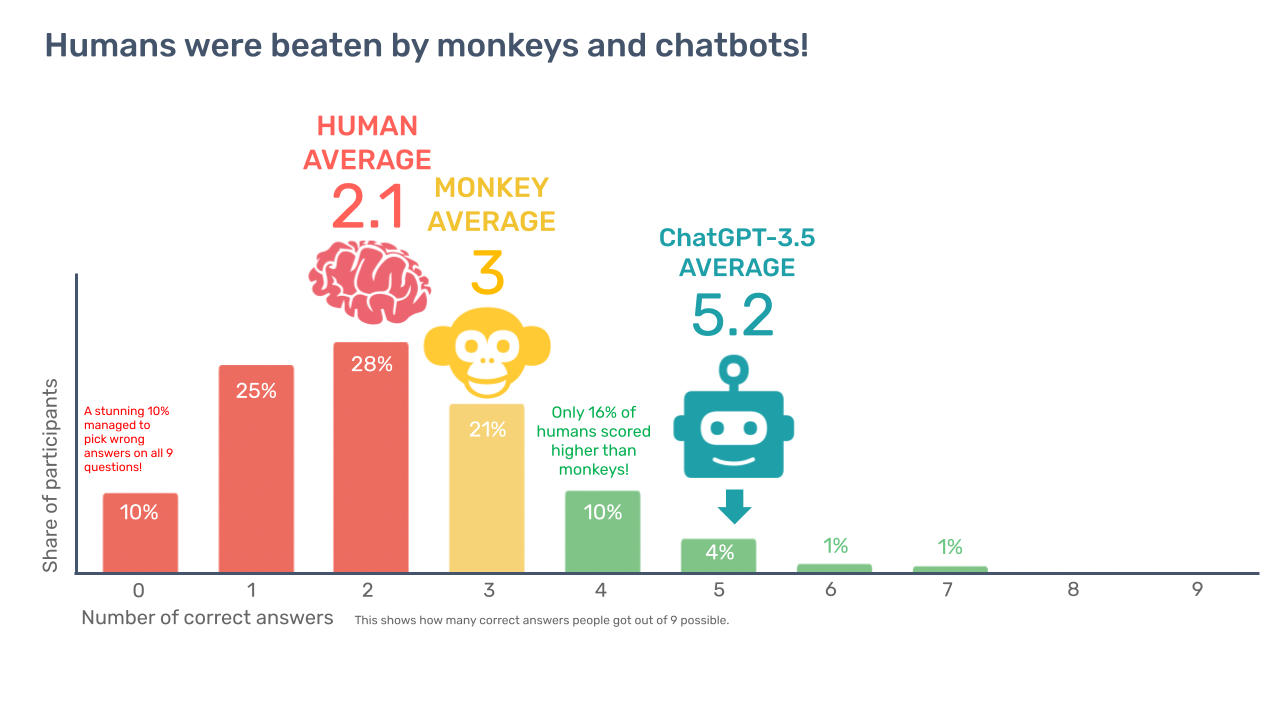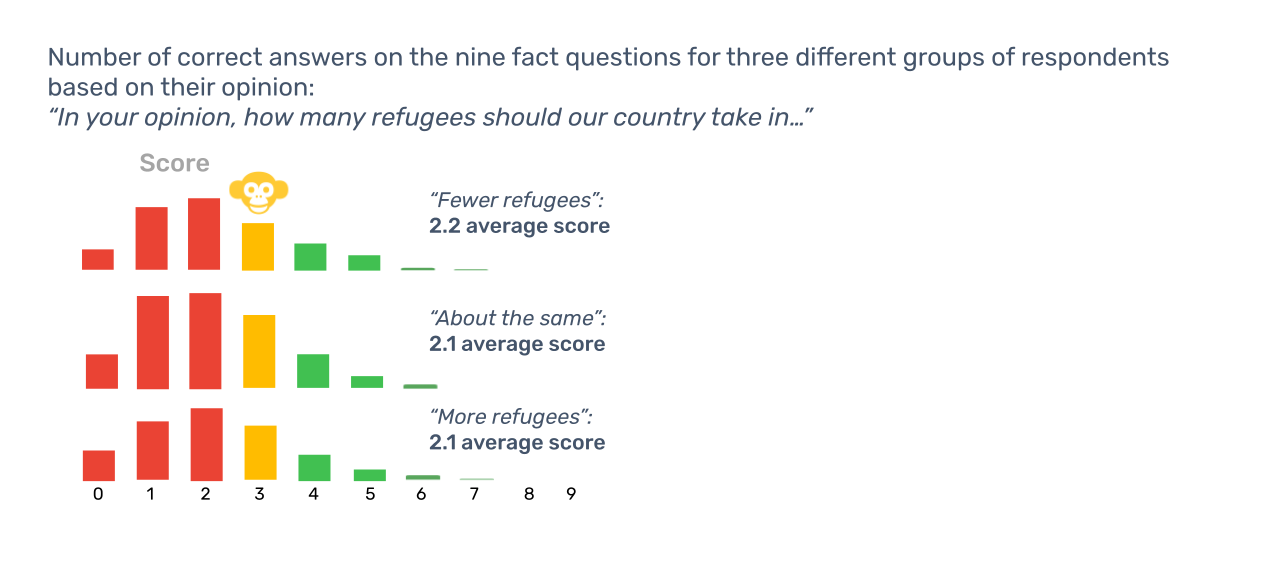
Widespread misconceptions about refugees!
Refugees are often in the news. The best ways to help them, where they should be housed and how much money to spend assisting them are fought over by politicians, the public and in the media. In our Refugee Misconception Study 2023, we discovered that – regardless of people’s opinions – they were almost equally wrong about the facts.
We asked nine fact questions in seven different countries. The average number of questions each person answered correctly across those countries was 2.1. That is worse than random!
Across the countries we surveyed, there was very little difference, no matter how many refugees that particular country hosted. These are the average number of correct answers from each country:
Kenya: 2.5 out of a possible 9
Türkiye: 2.4
US: 2.3
UK: 2.1
Colombia: 2.1
Pakistan: 2.0
Germany: 1.9
We also asked the same questions to ChatGPT 3.5, which scored 5.2, better than both humans and monkeys.
 Scoring worse than random indicates that there are some underlying systematic misconceptions skewing people’s worldview and affecting how they answer. Among the devastating misconceptions we found, it was common for people to wrongly think that:
Scoring worse than random indicates that there are some underlying systematic misconceptions skewing people’s worldview and affecting how they answer. Among the devastating misconceptions we found, it was common for people to wrongly think that:
- There are hundreds of millions of refugees globally
- Refugees increased most in high-income countries
- Exile is short and basic needs are taken care of
- The UN has more money than Western Europe to help refugees
In addition to fact questions, we also tested people’s opinions about whether they would prefer their country to welcome more refugees, fewer or the same number as before, as well as how resources should be allocated. In the countries we tested, people’s opinions made almost no difference to how correctly they answered the nine fact questions.

This matters! If we are to have a proper debate about how to help the most vulnerable people who are fleeing conflict and persecution, it is absolutely essential that it is informed by facts.
The results from all nine questions are in the report (Refugee Misconception Study 2023, version 1), along with a detailed look at the results from each country.
The questions are also part of our Refugee fact test, which you can take here to learn more.
